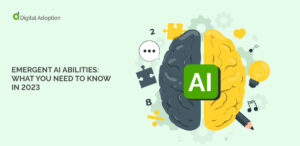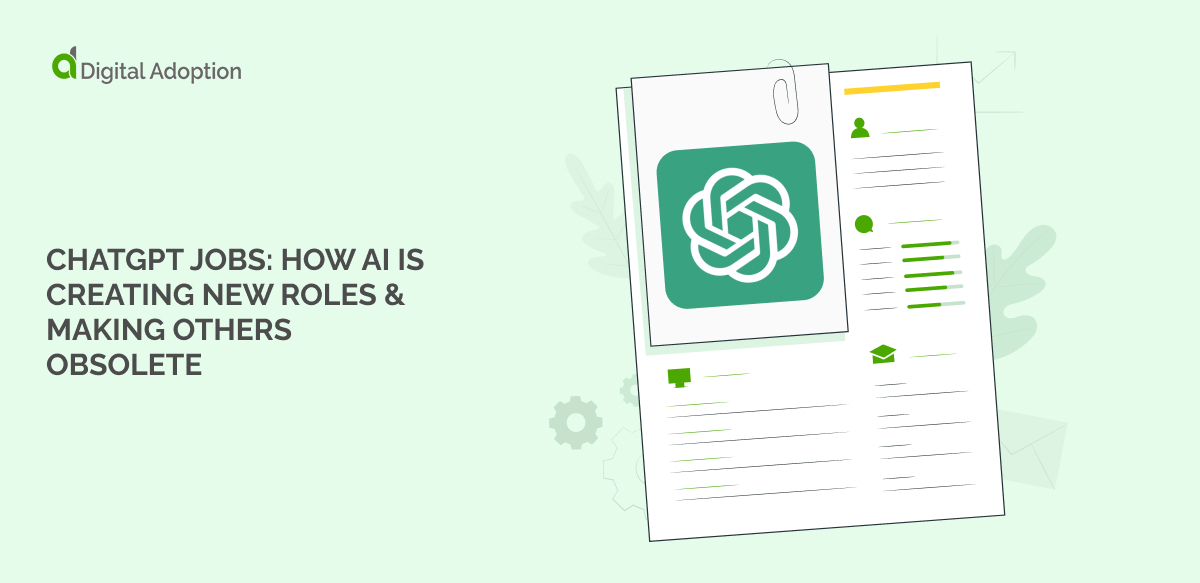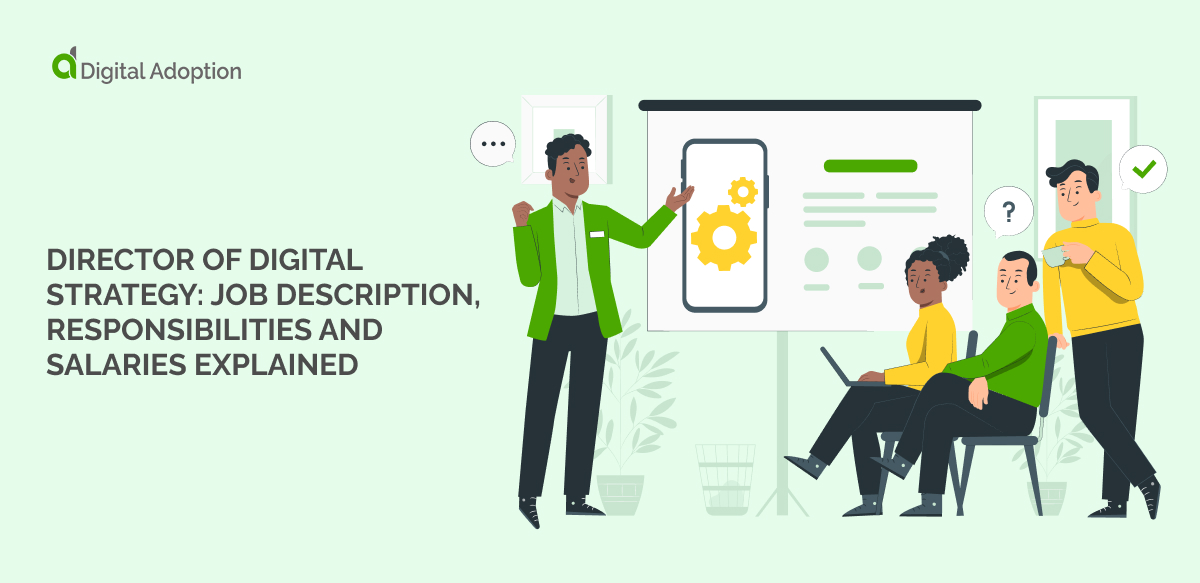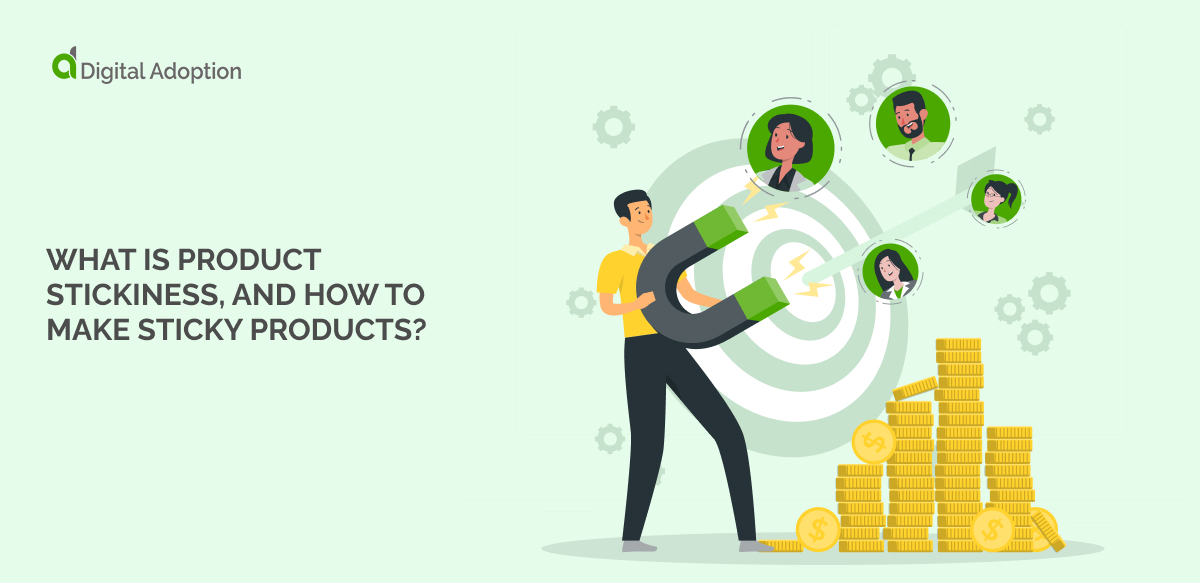Digital adoption practitioners help to build, manage, and drive the adoption of new digital tools and software in an organization.
Today, these job roles can improve essential digital programs, such as software implementation, product adoption, and digital training.
In the coming years, however, they will play an even more pivotal role in digital transformation, since digital technology will become the defining feature of tomorrow’s economy.
For instance:
- Deloitte predicts that automation, algorithms, robots, and other technology will fuse with a more diverse workforce composition, reshaping the way many finance companies operate
- IDC predicts that by 2023, the majority of global GDP will be generated by digital-first businesses
- Research from PwC suggests that today’s workers are concerned about the future of work and most are ready to learn new skills or retrain
Given these trends, it should come as no surprise that digital adoption has become a growing trend in the modern workplace. And along with the growth of this trend we are also seeing the rise of new technologies, processes, and job roles – namely, digital adoption practitioners.
3 Types of Digital Adoption Practitioners Every Organization Needs
Digital adoption jobs can be found at every level of the organization, from the frontline technician to the executive level.
Below, we’ll look at three key roles:
Digital Adoption Technicians
Digital adoption technicians, or digital adoption builders, are those who manage the implementation of digital adoption solutions and strategies.
Professionals working in this area of digital adoption will perform hands-on work such as:
- Collaborating directly with clients to understand their needs and design solutions
- Implementing digital adoption platforms and IT solutions
- Designing training content
As with the other positions covered below, the exact nature of the work will depend on employers’ and clients’ needs, as well as the skills and specialization of the practitioner.
Digital Adoption Managers
Digital adoption managers oversee both short- and long-term digital adoption programs.
In this role, digital adoption practitioners’ duties can include:
- Delegating teams and coordinating communication
- Managing the operations of digital adoption projects to ensure that they meet their objectives
- Managing onboarding and training programs
Since this role requires managerial and leadership skills, it is suitable for those who already have experience managing projects, such as project managers and change managers.
Digital Adoption Leaders
Digital adoption leaders are often senior business leaders and executives, whose main concern is how to design, scale, and lead large organization projects.
Professionals in this role will often be concerned with:
- Integrating and aligning digital adoption initiatives with digital transformation efforts
- Maximizing the positive impact of those programs on the organization’s performance
- Leading digital-first business transformation initiatives that support business strategy
Effective leadership is as essential to digital adoption as it is to any other business endeavor and will directly impact the outcomes of digital adoption efforts.
Since skills and expertise has such a large impact on the quality and performance of digital adoption efforts, those interested in becoming a digital adoption practitioner should consider investing in education and training.
Tips for Becoming a Digital Adoption Practitioner
Here are a few guidelines and tips that can help professionals pursue career opportunities in this high-growth field:
- Research the digital adoption process in depth. To better determine if digital adoption is an appropriate career choice, interested professionals should research topics such as product adoption, user onboarding, the user experience, software training, and digital adoption platforms.
- Understand the meaning and value of digital transformation. Technology-driven innovations have been transforming the global economy for years, and they will continue to do so for some time to come. The use of digital technology to enhance or change a business is known as digital transformation, and this process goes hand-in-hand with digital adoption. This information can provide context and insight into the digital adoption process and help interested candidates determine if it is a suitable career choice.
- Learn from leaders in the digital adoption space. Industry leaders, such as WalkMe, are ideal resources for digital adoption. WalkMe’s blog, for instance, provides extensive content on everything related to digital adoption, including digital transformation, digital adoption platforms, the user experience, and more.
- Become familiar with management disciplines such as project management and change management. As mentioned above, today’s economy is changing rapidly, and that change is driving many digital adoption and transformation efforts. Disciplines such as change management, therefore, play an important role in those digital programs. It stands to reason that anyone who enjoys these types of managerial positions would be able to find similar positions within the digital adoption space, particularly as digital adoption managers and leaders.
- Obtain certification or formal training in digital adoption. There are also emerging opportunities for education and practical training. WalkMe’s Digital Adoption Institute, for example, offers training specifically geared towards digital adoption technicians, managers, and leaders.
With the proper preparation, the right candidates will have the opportunity to gain experience in this rewarding and promising discipline.













